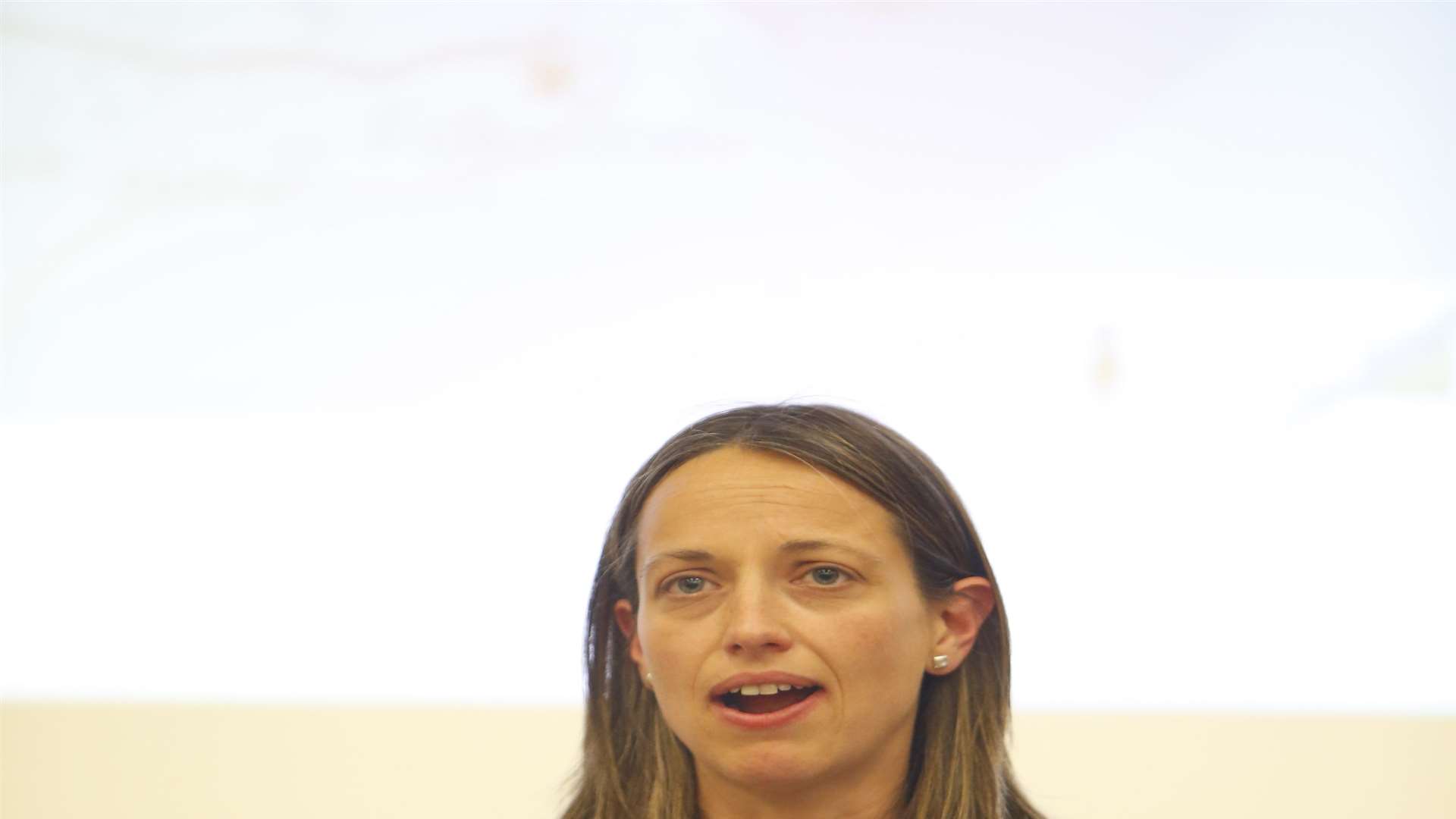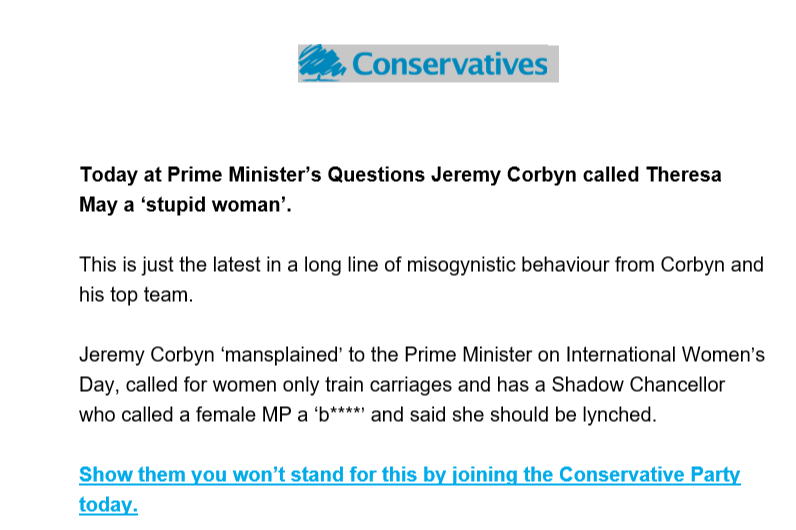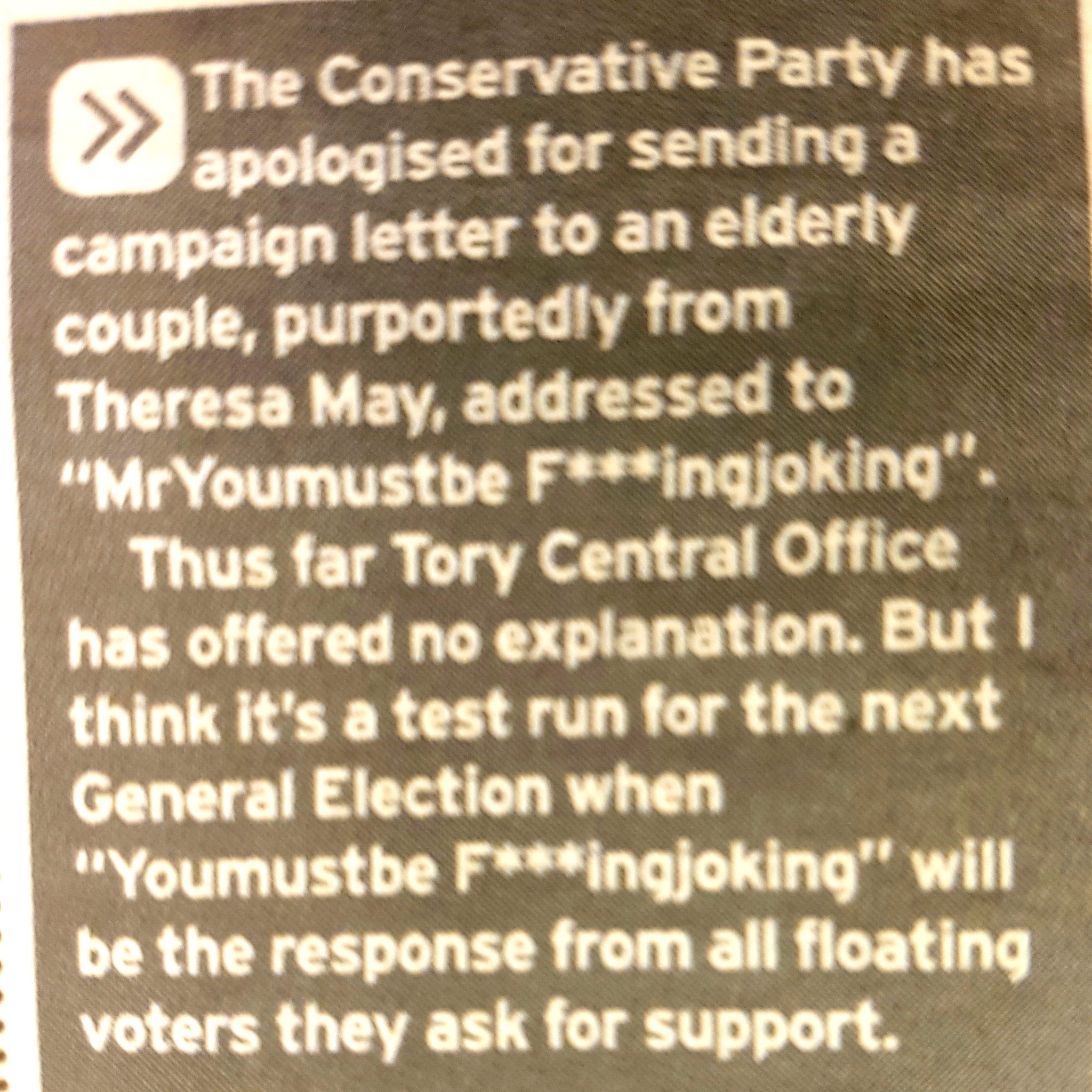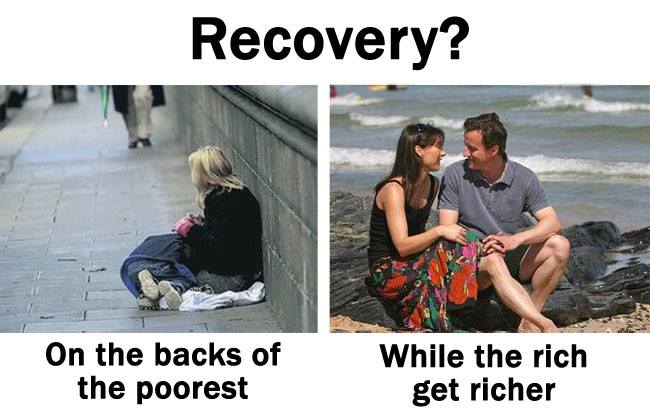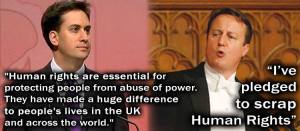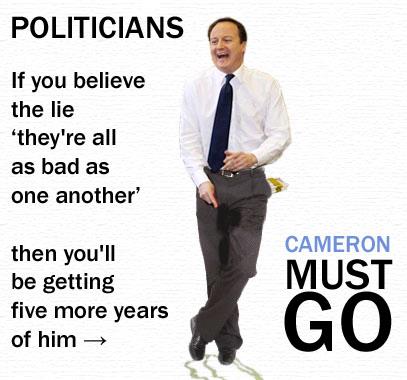The Conservatives have conducted their election campaign with sneering contempt, meaningless soundbites, trivial glittering generalities and barely a veneer of democratic engagement.
The misleading comments, half-truths, out of context one-liners and misquotes that have dominated the Conservatives’ typically authoritarian approach are a disgrace to politics, and the media that has accommodated these deplorable tactics and vapid crib sheet insults without holding the government to account have also played a part in undermining our democracy and distorting the terms of debate.
Any question the Tories are asked that they would prefer not to answer is met with a descent into gossipmongering about Jeremy Corbyn and Diane Abbott. And when pressed, the Conservatives are always conservative with the truth. They are masters at erecting fact proof screens. This shows that the Conservatives have nothing but contempt for our democratic process.
The corporate media are providing fewer and fewer venues for genuine democratic deliberation of political issues. Ordinary citizens are most often being treated as passive receptacles of “information” provided by media networks. It’s all style over content, though. The media should never be reduced to being a front for Conservative fake news.
Indexing, and media framing means that large organizations authorised to advance a news agenda often take their direction from political elites, and rely on those elite actors as sources of “information.” Media literacy and public democratic debate has little room to thrive in such a media environment. That needs to change. The public’s trust in the media has already been undermined considerably over recent years. The biggest concern is the negative impact that this has on our democracy and on public interest.
The Tories have no decorum, nor do they offer any genuine discussion about the details of Conservative policies whatsoever. Even worse, the Conservatives are so arrogant, they don’t feel they have to discuss their policy intentions or behave in an accountable and transparent manner at all. This is a government that have got their own way for far too long. They have spent their campaign telling the public who they should and should not vote for. To vote for anyone but the Conservatives, they say, is “dangerous”.
Not if you happen to be sick and disabled, however. Ask the United Nations.
A strategy of tension and perpetuated myths
Despite what the Conservatives have been saying to the public, Jeremy Corbyn signed a motion in the House of Commons that condemned IRA violence and “extended its sympathy to the relatives of those murdered”.
He supported an early day motion put forward by Labour MP David Winnick to commemorate the victims of the IRA bombing in Birmingham in 1974.
The motion was tabled on the 20 year anniversary of the attack that killed 21 people and injured 182 others and was signed by Corbyn in November 1994.
The motion said: “This House notes that it is 20 years since the mass killings of 21 people in Birmingham as a result of terrorist violence; deplores that such an atrocity occurred and again extends its deepest sympathy to the relatives of those murdered and also to all those injured. And strongly hopes that the present cessation of violence by the paramilitary organisations in Northern Ireland will be permanent and thus ensure that such an atrocity as took place in Birmingham as well as the killings in many other places both in Northern Ireland itself and Great Britain will never occur again.”
Despite the fact the Labour leader has said several times during televised interviews that he condemns “all bombing” that took place during that period, journalists, political editors and correspondents seem to nonetheless feel a need to constantly ask if he will “denounce” IRA terrorism. The Conservatives have been permitted to peddle untruths and manipulate half truths unchecked. It’s almost as if Lynton Crosby, the high priest of divisive politics, dead cats and dog whistles, has widely distributed a crib sheet of a limited range of limited questions to be repeated over and over, such as this one, to divert everyone from any discussion whatsoever about policies or anything remotely meaningful.
I’m rather disgusted in our so-called “impartial” national media for allowing this to happen without any critical thought or investigation whatsoever. Or genuine facilitation of democratic debate. You know, those things that journalists and such are actually paid to do.
If someone pressed me over and over to denounce the IRA and to imply that England were entirely blameless in the Troubles, I would have been much less polite than Corbyn. This was an absolutely disgusting manipulation of Corbyn’s integrity.
It is possible to feel sympathy for ALL of those deaths and those family and loved ones left behind, in such a tragic, violent and seemingly relentless ethno-nationalist conflict.
Despite the fact that the British government claimed neutrality and deployed military forces to Northern Ireland simply to “maintain law and order”, the British security forces focused on republican paramilitaries and activists, and the Ballast investigation by the Police Ombudsman confirmed that British forces colluded on several occasions with loyalist paramilitaries, were involved in murder, and furthermore obstructed the course of justice when claims of collusion and murder were investigated.
The British Army shot dead thirteen unarmed male civilians at a proscribed anti-internment rally in Derry, on 30 January, 1972 (“Bloody Sunday”). A fourteenth man died of his injuries some months later and more than fourteen other civilians were wounded. The march had been organised by the Northern Ireland Civil Rights Association (NICRA).
This was one of the most prominent events that occurred during the Northern Irish Conflict as it was recorded as the largest number of people killed in a single incident during the period.
Bloody Sunday greatly increased the hostility of Catholics and Irish nationalists towards the British military and government while significantly elevating tensions during the Northern Irish Conflict. As a result, the Provisional Irish Republican Army (IRA) gained more support, especially through rising numbers of recruits in the local areas.
It’s possible to recognise that those civilian deaths were an outrage and tragic. It’s possible to recognise the pain of their loved ones and families left behind. It’s also possible to condemn the acts of terrorism that left english civilians dead, too. It’s possible to honour ALL of those people who were killed in the conflict. I do.
Human lives are equally precious and have equal worth. It’s a mark of insighfulness, maturity and integrity to recognise this. History has a scattering of despots commiting atrocities and genocide, because they refused to consider all people as human beings. It seems we never learn, though. Holding this perspective does not mean that I cannot also condemn acts of despicable terrorism.
The Good Friday Agreement in 1998 brought lasting peace. History actualy showed that Corbyn’s approach was the right one. So we need to ask ourselves why it is that Theresa May, her party, and the media are so fixated on events that happened over 20 years ago. For the record, Margaret Thatcher held secret meetings with the IRA to negotiate peace. John Major also had established links with the IRA for the same reason.
Quite properly so. It’s reasonable to expect our government to explore diplomatic solutions to conflicts in order to keep citizens safe.
It beggars belief that the media have permitted this opportunist political hectoring from the Tories to continue relatively unchallenged. It didn’t take a lot of research – fact checking – to find this information, yet nobody else seems to have bothered.
It’s against the law for politicians to lie about their opponent’s character, or misrepresent them during an election campaign, by the way. I’m saving up all f those dark ads to send to the Electoral Commission with my complaint.
Just to emphasis how absurd the Conservative election campaign has become, it’s worth considering this:

And this

Does Prince Charles have “links with terrorists”?

How about Donald Trump?

Gosh, I have a strong sense of deja vu
There is a picture of Corbyn circulating in both the mainstream media and on social media that was taken in 1995 with Gerry Adams, (of Sinn Fein), in an attempt to try to link Corbyn with IRA “sympathies”, albeit indirectly. The picture was actually taken after the Downing Street Declaration (an agreement between the UK and Ireland that the Northern Irish people had the right to self-determination) which led to the first IRA ceasefire, under Major’s government. Corbyn contributed to the debate by pushing the IRA to abandon the bombings and sit down to negotiate since the 1980s. He has made it clear that he prefers diplomatic solutions to war. Rightly so. War should only ever be considered as a last resort. Wars do not keep people safe, but sometimes they become necessary, of course.
Voting against Anti-Terrorism Legislation
Jeremy Corbyn has voted against Anti-Terrorism Bills. They are complex pieces of legislation which have sometimes presented human rights conflicts within the details, for example. Theresa May also voted against Anti-Terrorism Legislation in 2005. The Conservatives have certainly been conservative with the truth and misled the public, implying that Corbyn is “soft” on terrorism, but of course Theresa May isn’t. Strong and stable propaganda from the Selfservatives.
Amber Rudd said recently on the televised leader’s debate:“I am shocked that Jeremy Corbyn, just in 2011, ‘boasted’ that he had opposed every piece of anti-terror legislation in his 30 years in office.”
Much to Rudd’s discomfort, Corbyn has replied:
“Can I just remind you that in 2005 Theresa May voted against the anti-terror legislation at that time. She voted against it, as did David Davis, as did a number of people that are now in your cabinet, because they felt that the legislation was giving too much executive power.” ( Jeremy Corbyn, BBC Election Debate.)
I looked at the voting records to fact check this. Corbyn is right, of course. Here is what I found:
On 28 Feb 2005: Theresa May voted no on the Prevention of Terrorism Bill — Third Reading
On 9 Mar 2005: Theresa May voted no on Prevention of Terrorism Bill — Rejection of New Lords’ Amendment — Sunset Clause
On 9 Mar 2005: Theresa May voted no on Prevention of Terrorism Bill — Rejection of Lords’ Amendment — Human Rights Obligations
On 10 Mar 2005: Theresa May voted no on Prevention of Terrorism Bill — Insisted Amendment — on Human Rights Obligations
Source: Theyworkforyou.
Broadening my search, I also found:
Terrorism Act 2000 – legislation introduced by the Labour government which gave a broad definition of terrorism for the first time. The Act also gave the police the power to detain terrorist suspects for up to seven days and created a list of proscribed terrorist organisations.
May: Absent from the final vote.
Counter-terrorism Act 2008
This legislation gave powers to the police to question terrorist suspects after they had been charged. It also tried to extend detention without charge to 42 days, but the Labour government abandoned this after being defeated in the House of Lords.
May: Absent from the vote.
Political journalists are uninterested in serious political debate, and have permitted, fairly uniformly, Conservative propaganda to frame the debates, with the same misquotes, misinformation and misleading and trivial emphasis being repeated over and over. That the government are using such underhand tactics – mostly smear and fearmongering attempts – to win an election, unchallenged, is disgraceful. To witness such illiberal discussion taking place without a shred of concern is actually pretty frightening.
We have seen, over the last 7 years, the Conservatives’ authoritarianism embedded in punitive policies, in a failure to observe the basic human rights of some social groups, in their lack of accontability and diffusion of responsibility for the consequences of their draconian policies, and in their lack of democratic engagement with the opposition. Hurling personal insults, sneering and shouting over critics has become normalised by the Tories. People don’t recoil any more from what has often been dreadfully unreasonable hectoring. But they ought to.
Journalists may uphold public interest, they may contribute to the damage of democratic discourse, or they may remain indifferent. They make choices. One day the public will recognise those choices for what they are. The media have permitted a government to run an election campaign on simply telling people who they should not vote for, rather than one which informs people of policy choices, impacts and future political intentions. That is not healthy for democracy, which has been reduced by the Conservatives to gossipmongering, a lack of decorum, misquotes, dark ads and nudging people’s voting decisions.
You can learn such a lot about a person from the tone they use, and by a basic analysis of their language. The unforgettable slips by Iain Duncan Smith recently, when pressed about the triple tax lock and manifesto – “Look, what we were trying to get away with… er… get away from, rather…”
Who could forget Cameron’s slip: “We are saving more money for the rich”. A couple of moments of inadvertent truth.
Theresa May says “I will”. A lot.
Jeremy Corbyn says “WE will”.
Only one of them is democratic and open to genuine dialogue. The other one is Theresa May.
Related
The biggest threat to our national security and safety is authoritarian Conservative posturing and their arms deals to despotic states
Theresa May lies about Labour Policy on Question Time
Theresa May is ‘responsible’ for London terror attack and must resign says top David Cameron aide
I Served In Northern Ireland – And Corbyn’s Understanding Of The Troubles Has Been Proven Right By History
My work is unfunded and I don’t make any money from it. But you can support Politics and Insights and contribute by making a donation which will help me continue to research and write informative, insightful and independent articles, and to provide support to others.

